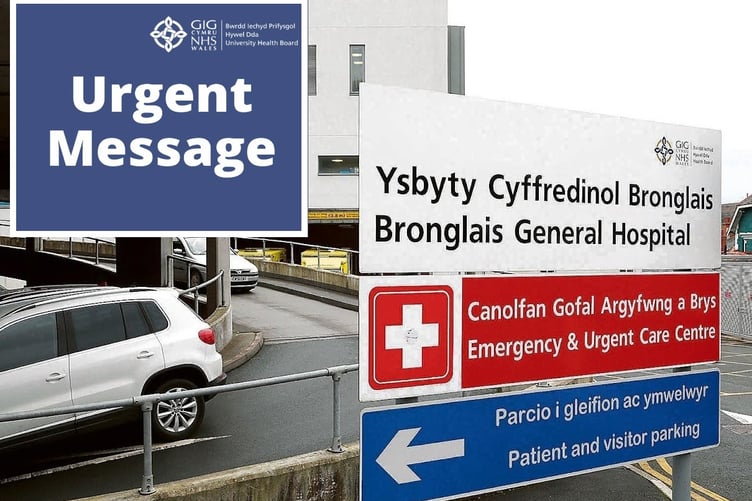How can we save the NHS in Wales in 600 words? As the Editor pointed out last week, the Ministerial Advisory Group has recently reported, and many of its findings state the “bleedin’ obvious”. But in fairness, they have reported quickly, set some achievable targets, and the Welsh Government have accepted their 29 recommendations.
But I can’t help feeling that all we are doing is rearranging the proverbial deckchairs on the Titanic. If we want to have a modern healthcare system that works well for everyone, then we need to strip things back to a much more fundamental level, and rebuild from there. These views are my own, and they do not represent the view of my chosen political party (Welsh Conservatives).
My thoughts are based on a professional life working as a Doctor (Orthopaedic Surgeon, now retired) in the Royal Navy, NHS, private and independent sectors, with some limited experience of healthcare in other countries. I came to believe (passionately) in a simple founding principle: “Everyone in the UK who is entitled, should have timely access to great quality healthcare, regardless of their financial wherewithal”. Please note two things. Good healthcare is always good value healthcare. And there is no room for the word “free” because free healthcare doesn’t exist; someone has to pay.
By all means come up with a better founding principle, but in my the focus should be on universal access to great healthcare, and those with any other agenda need to be excluded from the debate. This is far too important to be a political football.
Firstly we need a framework, which should be defined at a UK level. Illness or injury do not respect Offa’s Dyke or Hadrian’s Wall (as Covid taught us). What is healthcare? What should the State do? When does individual responsibility take over? What standards should we expect and strive for? This is the role of the NHS. It (the NHS) is fundamentally a concept, and not in itself an institution. Whitehall or Cardiff, can’t possibly manage every ward or emergency department. Their job is to ensure access and demand quality.
Secondly we need to understand how we fund our healthcare. There are only two ways to do this; pay as we go, or mutualise the risk. Many of us pay for “bite size” healthcare like spectacles or dental care, so there isn’t anything wrong or unfamiliar with that concept. But what happens if you suffer polytrauma, or get cancer. The cost of great value treatment may run to many tens or even hundreds of thousands. That’s a huge hit even for the extremely rich. So we need to mutualise these risks. Either we can do that via the state through taxation, or we could look at an insurance based model.
Currently we do the former, and the system we have isn’t working very well. Many other countries work a compulsory insurance system with state back up for the less well off. They achieve better outcomes, quicker access and lower costs. I see an even better middle way; let the State (NHS) focus on the “big ticket” items and do them really well; look towards an insurance model and the use of qualified providers for “bite sized” things like cataract surgery or joint replacement. If you want to dismiss that idea, please explain how in Europe you can get a private hip replacement done at the time of your choice for £6,000 whilst the Welsh NHS charges the taxpayer almost £10,000 with a long wait.
Thirdly, delivery; anyone who claims this is easy, should leave the debate now, because self-evidently it isn’t. It is dependent on so many things including geography, road infrastructure, population density and demographics. Ceredigion is clearly different to Birmingham. It is why we need decisions on delivery driven by a competent (important!) devolved Welsh Government. But with three quarters of the area of Wales run by three of the seven Health Boards, I query whether our administrative model is right, particularly for rural Wales. Hence for Hywel Dda HB, it may make sense to close the stroke Unit at Bronglais (world class in my own family’s experience), but not for the elderly residents of Ceredigion, east Powys or south Gwynedd.
And if independent providers can deliver great value healthcare, then we would be mad to exclude them for political dogma’s sake. Indeed Recommendation 5 of the MAG’s report highlights this. Let the debate begin, but let’s focus on the pragmatic delivery of great healthcare; we already pay for it, we want it and we deserve it!





Comments
This article has no comments yet. Be the first to leave a comment.